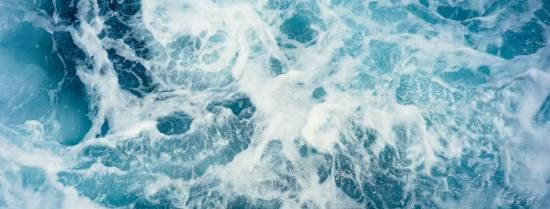The theme of this year’s World Water Day is, very simply, ‘Water for Peace’. In a moment where, globally, we are transfixed by the tragedies taking place in Gaza and Ukraine (among many others) it is worth taking a moment to reflect on the role water plays in both conflict and peace-making.
Just as water represents the two extremes of drought and flood, water also has the power to influence the extremes of peace and conflict. The UN Water Council implores us to ‘act upon the realization that water is not only a resource to be used and competed over – it is a human right, intrinsic to every aspect of life.’ This reframing of water from resource to right is an objective that aligns well with the work of Dr Farhad Mukhtarov, Assistant Professor of Governance and Public Policy at the International Institute of Social Studies (ISS).
Collaboration for water diplomacy
Dr Mukhtarov serves as the Principal Investigator on the ‘Advancing EU Water Diplomacy in the South Caucasus’ project, undertaken in collaboration with colleagues from Koç University (Professor Şuhnaz Yılmaz) in Turkey, and the University of Oulu (Professor Björn Klöve) in Finland. Crucially, the project involves regional experts from each of the three South Caucasus nations, Azerbaijan, Armenia, and Georgia, in addition to experts from Turkey and Iran, with whom the Kura and Araz river basin is shared.
The project, funded by the UNIC (European University of Post-Industrial Cities) seed-funding mechanism, has three core research objectives. These are to (i) map current water security challenges and opportunities in the South Caucasus (ii) facilitate existing dialogues between scientists and experts in the region and (iii) maintain an active community platform of members from the region and UNIC partners. Ultimately, as Mukhtarov states, the goal of this project is to ‘identify a niche for the EU and EU member-states to [engage in water diplomacy] across borders’ and to engage with the South Caucasus region politically.

Tensions and conflict
Much emphasis has already been placed on conflicts within the region. Active conflicts include disputes between Armenia and Azerbaijan over the Nagorno-Karabakh region, the war in Ukraine, and occasional tensions between Iran and Azerbaijan. Turkey’s ambitious developments on transboundary rivers have also placed increasing stress on the region. Mukhtarov’s project, however, seeks to highlight water as an area in which further diplomacy is needed.
Already, downstream communities in the South Caucasus are facing environmental threats of intensifying severity, as more dams are built in the Kura and Araz rivers each year. Poor environmental governance and the increasing frequency of extreme weather events compound these effects, demonstrating the need to strengthen existing dialogues between scientists and experts, a challenge that this project addresses head-on.
Promoting open dialogue
One way the project has chosen to facilitate dialogue is via the creation of a platform involving members of each of the riparian nations. This platform, already in use, supports capacity-building and ongoing research into water diplomacy in the South Caucasus (an ambitious undertaking in light of the region’s multiple sensitivities). The project will also be hosting a workshop on 4-5 April, 2024 in Tbilisi, Georgia, to further activate the platform by gathering to discuss and write about water diplomacy in the region.
While the ‘Advancing EU Water Diplomacy in the South Caucasus’ project alludes to the role water plays in breaking peace, it also compellingly suggests that water diplomacy can help lay the groundwork for making peace, and even, as the Water for Peace campaign suggests, ‘lead us out of crisis’.
For more information on this project, click through to UNIC.
- Assistant professor
- Related content

